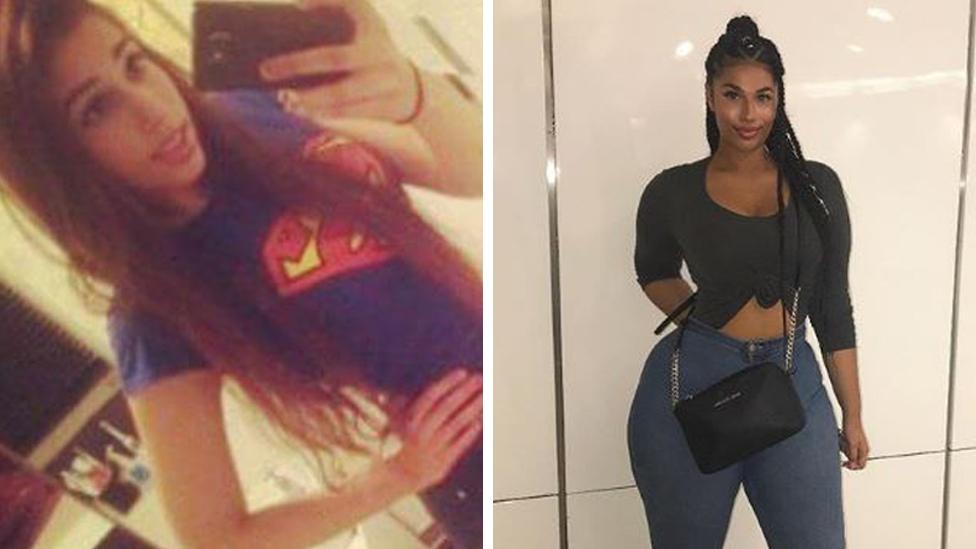Viewpoint: What series on Central Park Five teaches us today
- Published
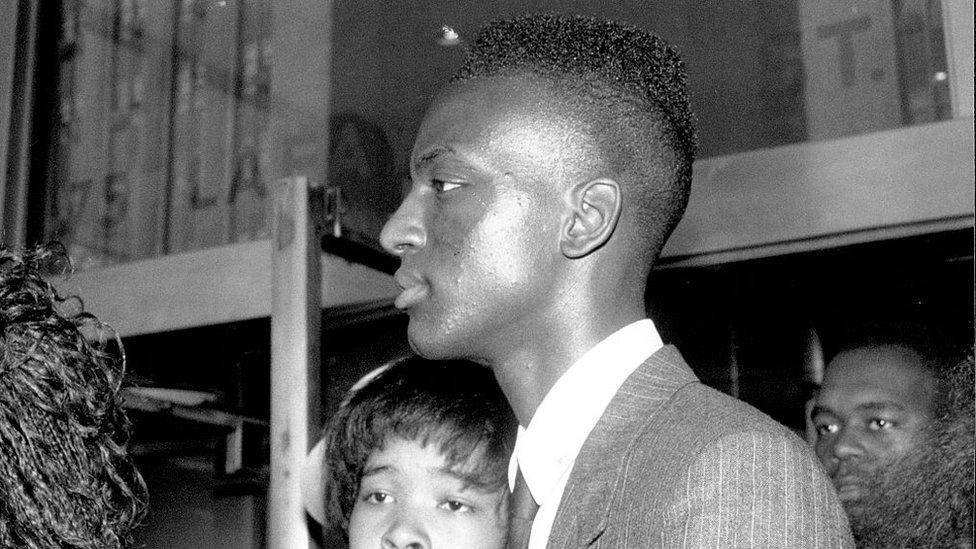
Yusef Salaam, during his trial

A true-crime Netflix series which focuses on a failure of the US justice system during the late 1980s has reminded a new audience that the horrors of the past still have meaning today.
Director Ava DuVernay's miniseries When They See Us tells the story of five young African-American and Latino boys who were falsely accused and wrongly convicted of attacking and raping a white woman in New York City's Central Park in 1989.
The scope of the injustices inflicted upon these teenagers, ages 14 to 16, has left audiences terrified and outraged.
"I didn't know that this kind of thing still happened past the 50s and 60s," says Jessica Randolph, who lives in Maryland.
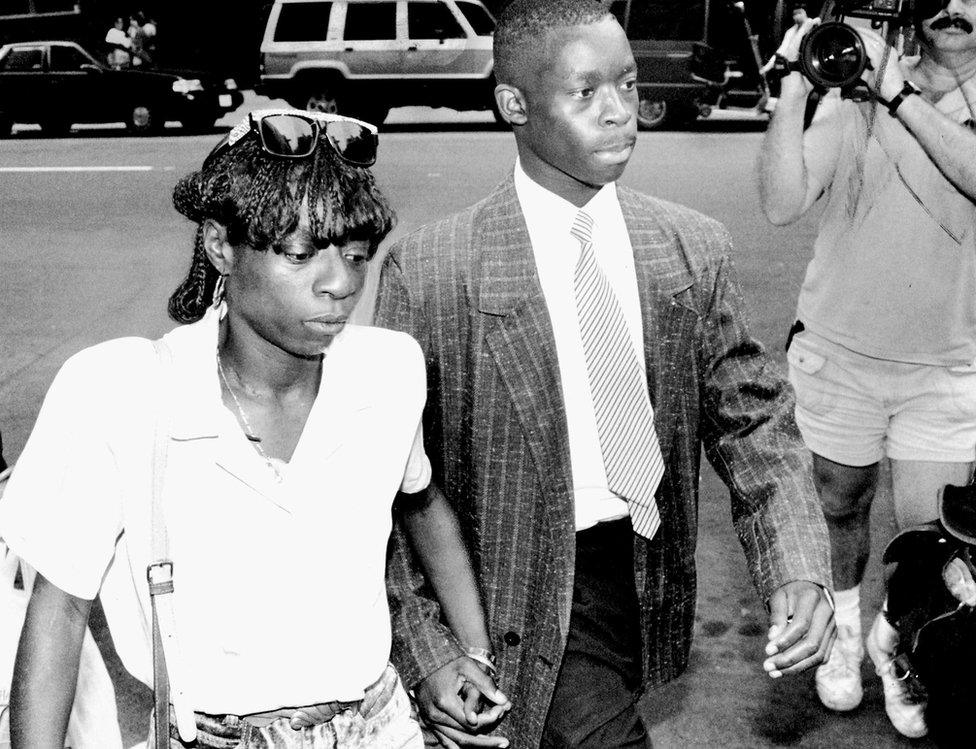
Antron McCray and his mother Linda McCray outside court in July 1990
Ms Randolph, 26, African-American, was born after the trial and had previously heard about the Central Park Five case, but she did not know the explicit details. For her, watching When They See Us felt like re-living a real-life horror story that tragically has always been a part of every-day black existence in America.
"It was a re-introduction to how America treats black and brown people.… the American system of destroying black and brown bodies," she says.
Allow X content?
This article contains content provided by X. We ask for your permission before anything is loaded, as they may be using cookies and other technologies. You may want to read X’s cookie policy, external and privacy policy, external before accepting. To view this content choose ‘accept and continue’.

America has a long history of falsely accusing black men of raping white women. The plot of America's first blockbuster movie, DW Griffith's incredibly racist Birth of a Nation, centred on protecting white women from black men. And in 1955, 14-year-old black boy Emmett Till was brutally murdered and mutilated for reportedly whistling at a white woman. In 2018, over 60 years later, the white woman, Carolyn Donham, retracted parts of her story. Till's open casket funeral allowed the world to see America's racist brutality.
Many Americans hoped that this bigotry was confined to the past, but learning about the experiences of the Central Park Five has reminded so many black Americans that the horrors of the past are still the horrors of today.
Allow X content?
This article contains content provided by X. We ask for your permission before anything is loaded, as they may be using cookies and other technologies. You may want to read X’s cookie policy, external and privacy policy, external before accepting. To view this content choose ‘accept and continue’.

Allow X content?
This article contains content provided by X. We ask for your permission before anything is loaded, as they may be using cookies and other technologies. You may want to read X’s cookie policy, external and privacy policy, external before accepting. To view this content choose ‘accept and continue’.

The facts of the case are simple. Around 21:00 on 19 April 1989, Trisha Meili, a 28-year-old white woman, went jogging through northern Central Park. During her run she was attacked, beaten, raped and left for dead. Her body was found around 01:30 the next day. Her attack left her in a coma for 12 days, but she survived. She has no recollection of her attack.
During that same night roughly 30 African American and Latino teenagers were also in Central Park, but not in the same area as Meili. The police were called around 22:00 to break up this gathering of black and brown children. That night Raymond Santana and Kevin Richardson were arrested and kept in jail overnight.
Allow X content?
This article contains content provided by X. We ask for your permission before anything is loaded, as they may be using cookies and other technologies. You may want to read X’s cookie policy, external and privacy policy, external before accepting. To view this content choose ‘accept and continue’.

By the next morning, the New York Police Department (NYPD) had decided to connect these children to the rape of Meili, and soon thereafter Yusef Salaam, Antron McCray and Korey Wise were arrested.
Despite not having any evidence linking these boys to the assault, and all of them professing their innocence; the NYPD intimidated and coerced the five boys into confessing to the crime.
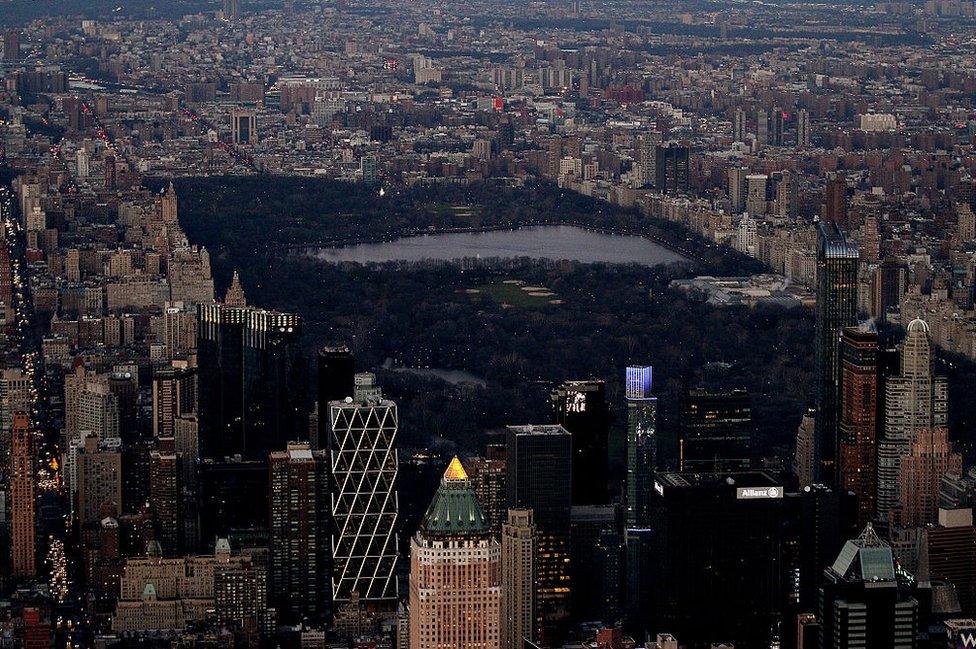
Central Park
The NYPD and district attorney's office perpetuated a narrative of these young boys being dangerous rapists and a threat to our society, and soon this trial garnered national attention. In 1989, Donald Trump even took out full-page ads in four major New York newspapers, spending nearly $90,000, demanding that New York bring back the death penalty for these five boys.
All five boys were found guilty of raping Meili.
When They See Us not only showed not only how these boys were essentially prejudged guilty until proven innocent, and how the entire criminal justice system failed them, but also America's tragic reliance on fearing non-white bodies.
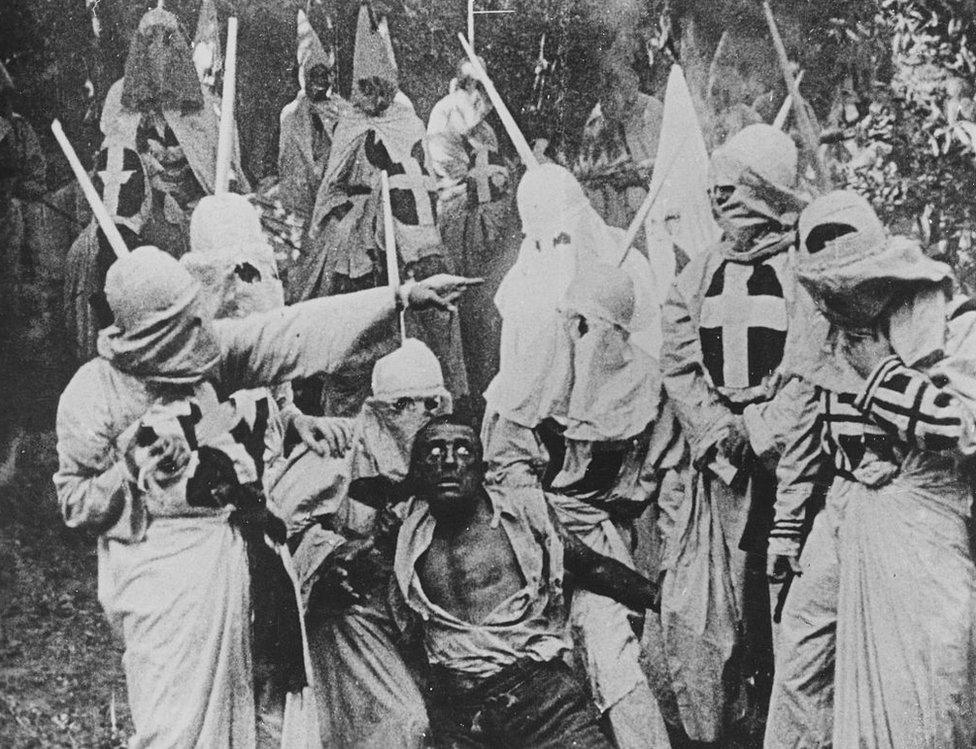
A scene from A Birth of a Nation
"Fear of blackness, or the fear of otherness more broadly, in many ways is one of the organizing elements of American identity," says Howard University professor Greg Carr. "And the whole four plus hours [of the miniseries], depicts that fear of blackness."
The miniseries reminds people how black boys are rarely seen as just boys in America. Too often they are treated as adults and threats to American society, and this cultural fear frequently results in the criminal justice system being used against them.
Of the five boys, Korey Wise was the only one who was 16 at the time of trial. Because of this he was sent to an adult prison and not a youth detention centre like the others.
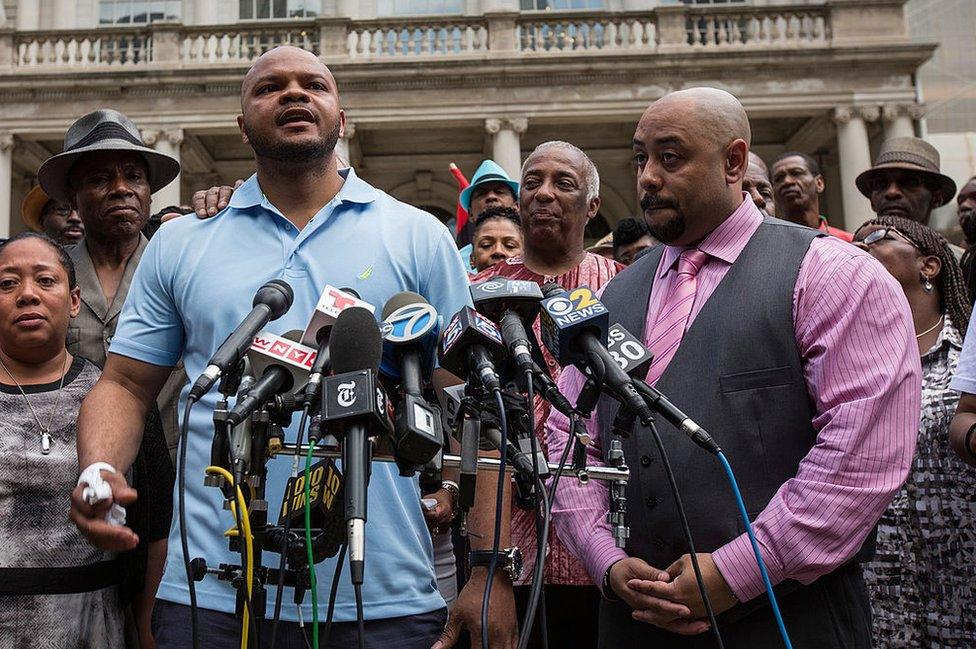
Kevin Richardson (right) and Raymond Santana discuss their settlement with the city
He stayed in prison the longest, and the notoriety of his case meant he was constantly in danger. Various factions, including white supremacists, wanted to attack or kill him. As a result, he spent much of his time in solitary confinement.
Watching the trauma of Korey's ordeal was the most difficult part of the series for many people and required a pause break, many people say. Seeing Korey constantly battle for his life and his own sanity as he spent months on end in isolation became too hard to watch.
In 2002, the Central Park Five were fully exonerated of the crimes they were convicted of after Matias Reyes, who was already serving a life sentence for murder, confessed to the crime. DNA evidence proved that he attacked and raped Meili. Following their exoneration the boys, now men, sued New York City, but for a decade the city refused to agree to the settlement.
Not until 2014 did the city agree to pay the men $41 million to compensate for the wrongful convictions.
Even today, many black families require that their boys must carry a card stating their age and requesting to see an attorney so that they do not end up like the Central Park Five, who were tricked into falsely confessing to crimes without a lawyer present.
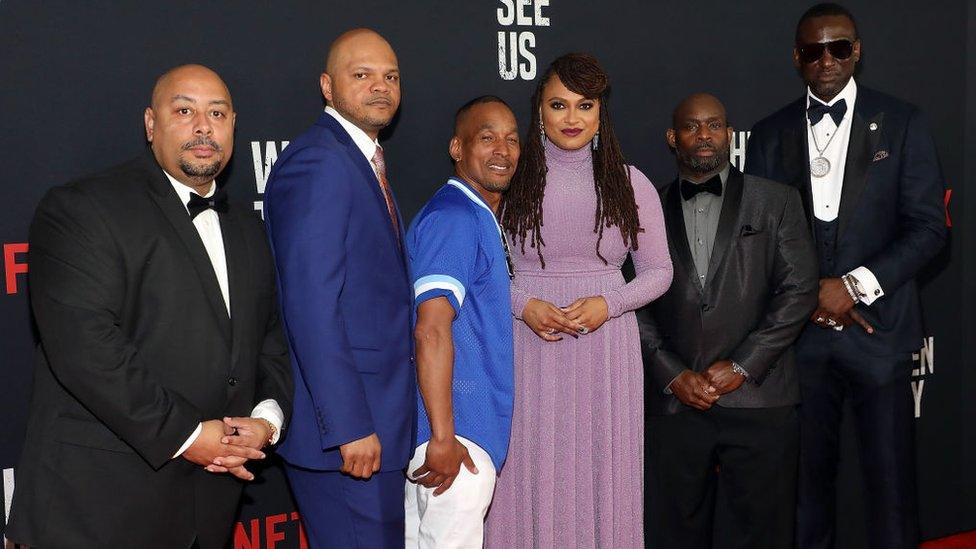
The Central Park Five with series director Ava DuVernay
So even if the case happened over 30 years ago, black families still defend themselves against the same dangers. The black community knows this is a horror we could still unjustly confront.
To make matters worse, the New York real estate developer who wanted the death penalty for these boys is now the president, and he launched his campaign by calling some Mexicans rapists and murderers. From the beginning, Donald Trump has organised his base and rallied his supporters around a fear of the other, and frequently as an act to protect white women against the non-existent threat of being raped by black and brown men.
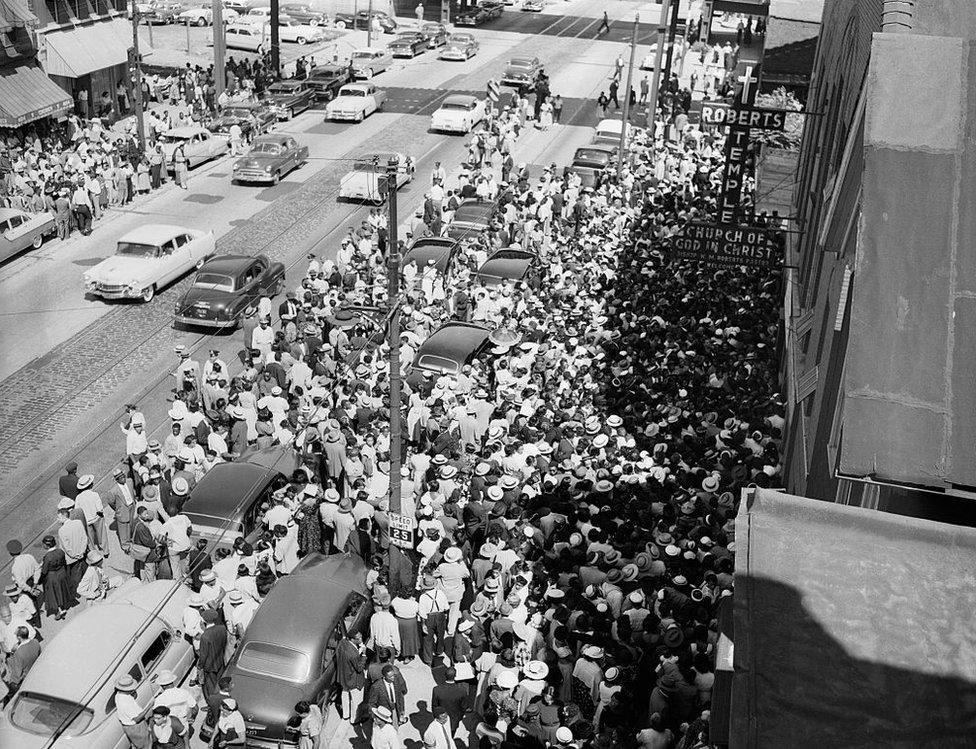
Thousands of black Americans visited the casket of 14-year-old Emmett Till
The show argues that the Central Park Five were good kids, but America worked to destroy their lives by refusing to believe that young black boys could play in a public park without harming white people.
When They See Us has reminded the minority community how they cannot get back what America's criminal justice system, and America's fear of black and brown bodies can take away in an instant.
Despite intimately knowing about America's systemic oppression and inequality, seeing it on film has provided everyone with a harsh wake up call and shaken people to their core. This nightmare has tragically always been the American norm.
Barrett is a writer, journalist and filmmaker focusing on race, culture and politics

You might also be interested in:
Viewpoint: Racial aggressions are part of America
- Published12 October 2016
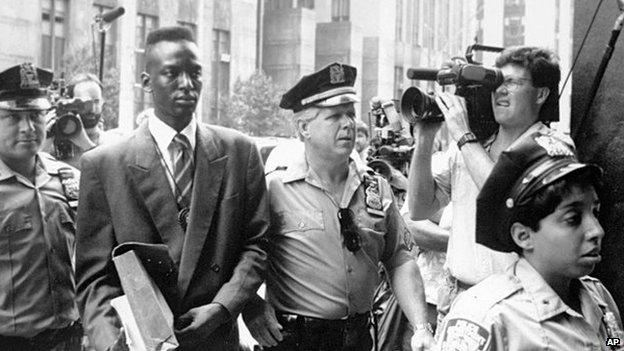
- Published8 June 2019
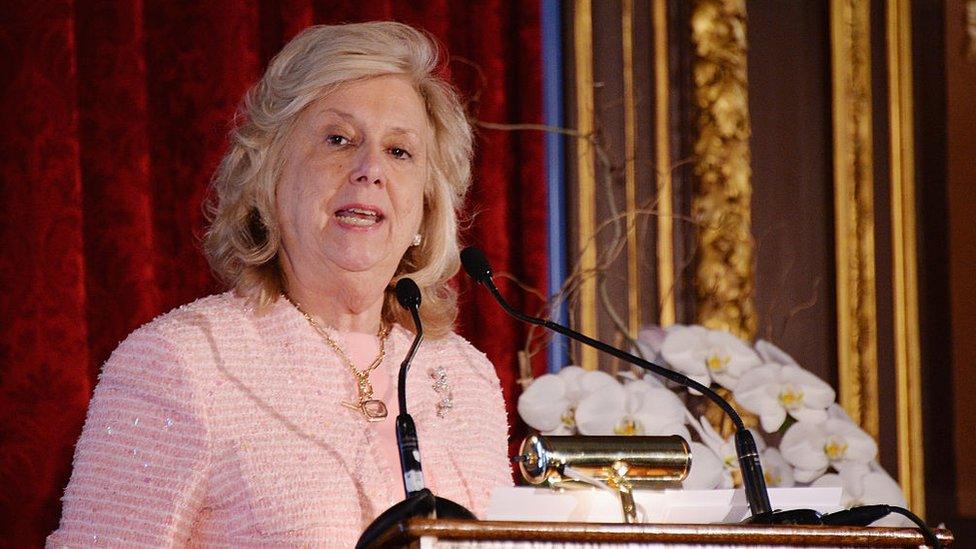
- Published20 June 2014
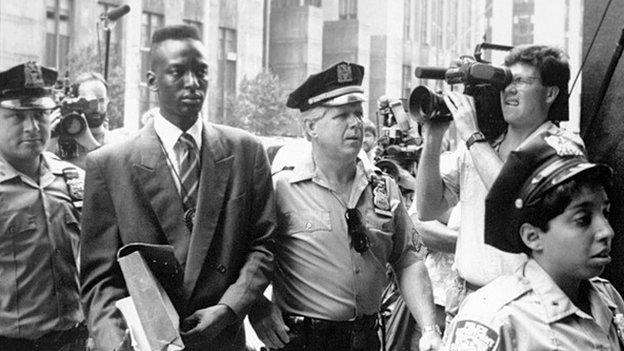
- Published27 May 2019
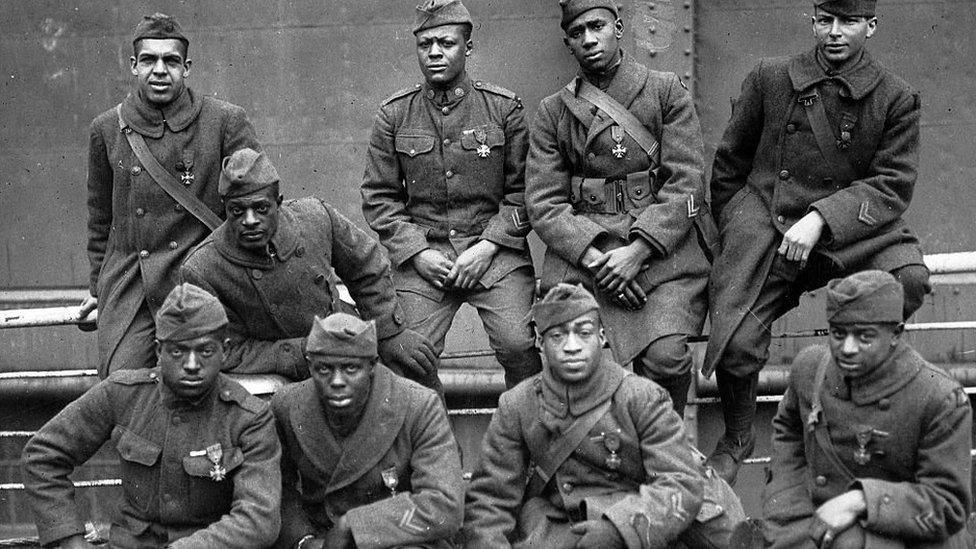
- Published5 December 2018
